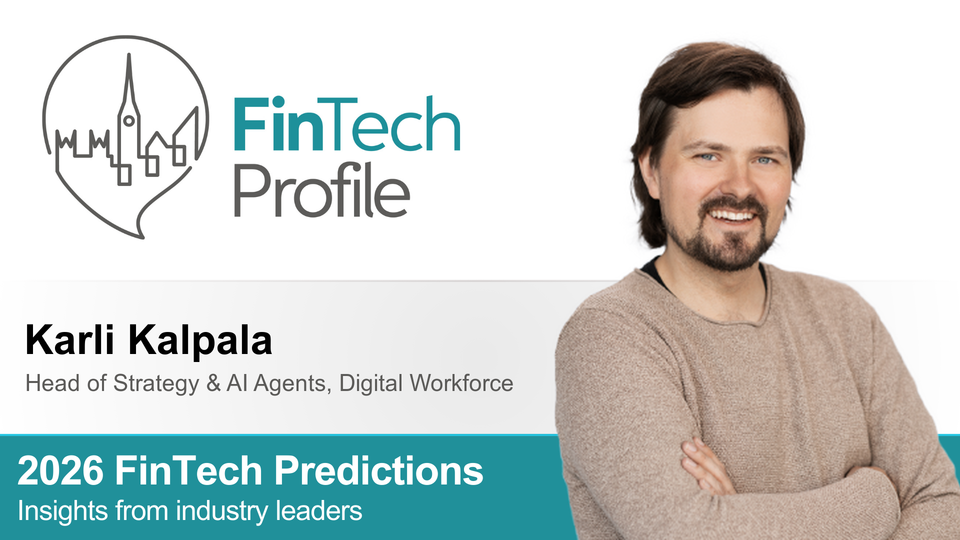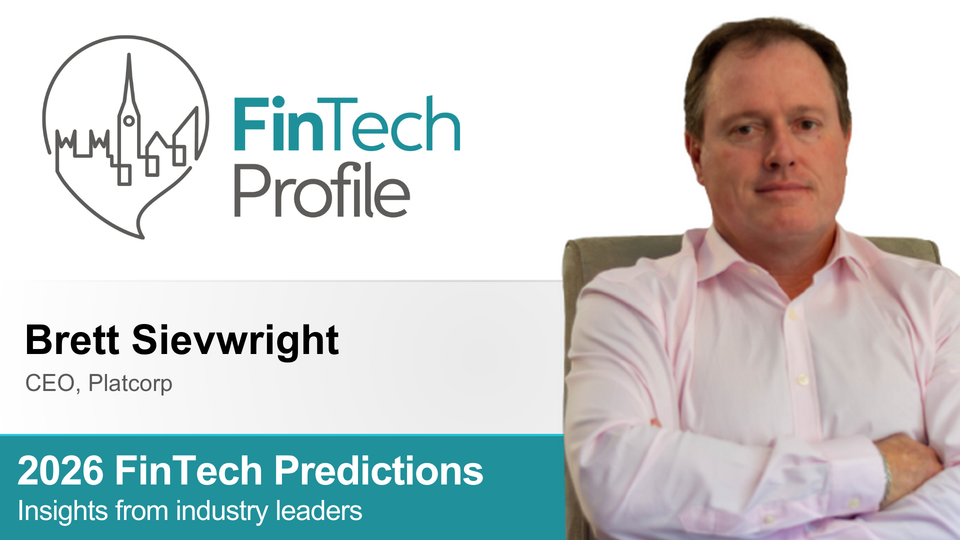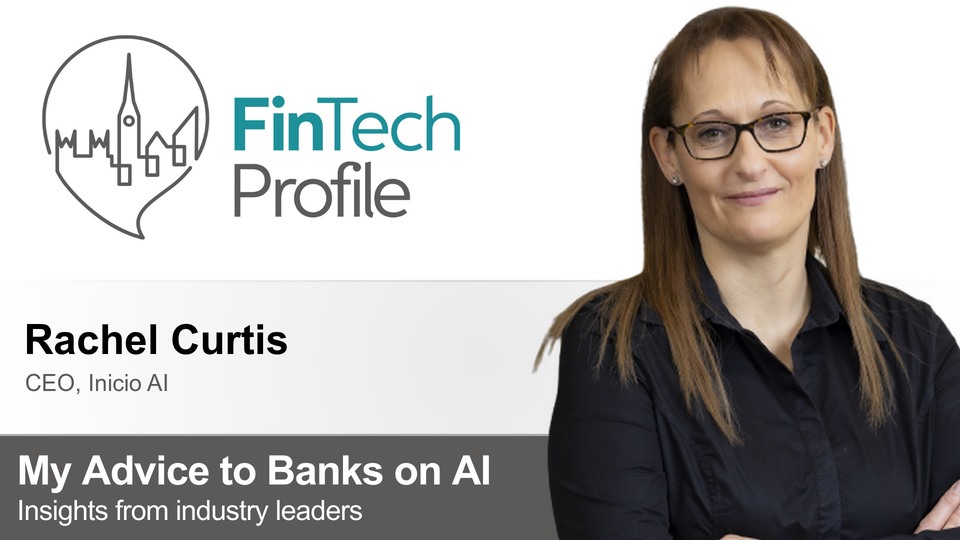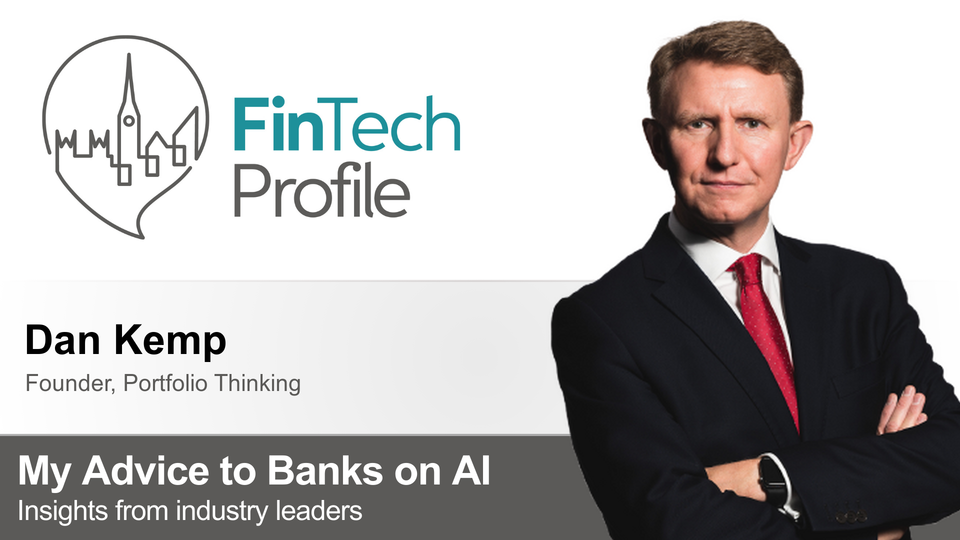Meet The Recruiter: Jamie McMath, CEO, FinEx
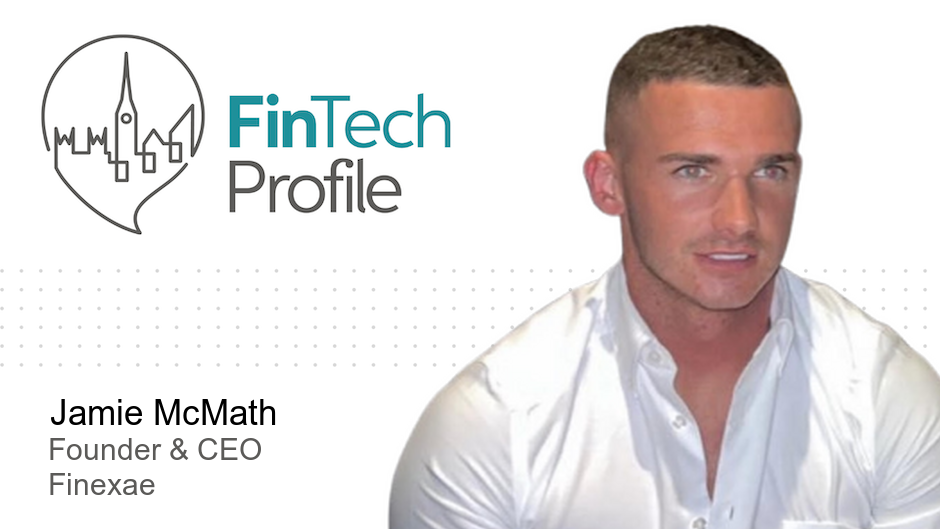
Welcome to the first in a series of profiles focusing on the people behind the scenes helping to drive change across the FinTech ecosystem: Recruiters!
I'm delighted to be featuring Jamie McMath here on FinTech Profile. Jamie is the CEO and Founder of FinEx (LinkedIn page), a technology-first recruitment firm based in Dubai and operating across the Gulf and Europe.
I think it's really important to make sure you've got good connections recruiters like Jamie, so I'd strongly recommend reaching out to him on LinkedIn. But – before you do that, do read his suggestions in his answers below.
Right, let's begin. Over to you, Jamie – my questions are in bold!
Tell us a bit about yourself – how did you get into FinTech recruiting?
I love the innovative nature of the fintech space, there are so many exceptional entrepreneurs who have amazing ideas but one common area of struggle has been bridging the gap between having great ideas vs finding the experts to make the dreams a reality.
I have been in the recruitment and staffing world for over 6 years. I started in London, working in the London and European Markets. While there, I saw the fantastic growth of Dubai's FinTech space and wanted to be a part of it, which led me to relocate in 2022.
Financial Services and wider FinTech have always been a niche specialism of mine. I helped shape the digital banking space in London, working with the likes of Barclays to build the core team. Across Europe, I worked with leading banks in the BeNeLux and Nordics, shaping their infrastructure and engineering teams. Both have led to great long-term success.
What kind of FinTech roles do you typically recruit for?
We are a 'technology first' business, and this will always remain our focus.
Our specialisms include; Engineering/Developers, Cloud/DevOps & infrastructure, Data and AI, Product.
We work with Senior Leadership through to mid-level hires, making good use of the network I have built over the last 6 years. We look outside of a Job Description to understand the vision, the culture and of course the core technical roadmap to which our network will need to fit into.
What types of companies do you usually work with?
We specialise in the start-up space, and I have had the pleasure of working with some of the leading names across both the UAE and KSA - from first hires to now well-established core team. I aim to remain a long-term strategic partner throughout their journey.
I have personally worked within AI Start-ups as a GTM strategist and supported with the productisation and strategy, so I know firsthand how ideas turn into a roadmap. I have seen what works and what doesn't. I believe this gives me an edge when working with clients in this space, as I feel their pain points and can advise them on what I have seen work in other businesses.
What hiring trends are you seeing in the FinTech space right now?
Remote work is always one that comes up, but most UAE/KSA companies like to have their core team in the office. This is something I usually agree with (with hybrid remote, of course). European clients are a lot more flexible on remote working and the USA even more so!
Data and AI is a hot topic, businesses are searching for ways to automate/cut the fat when it comes to their operations and AI is a good place to start. This only works when there is a combination of human with AI (I discuss this in more detail in the next question below).
Salaries in the UAE have become inflated. I am speaking with many clients in the region who feel this way, with average employees moving every 18 months (VERY common in the UAE). This always leads to salary increases for those experienced within region.
A strategy I have been implementing, is looking at experts from areas like Europe who have the relevant experience, and not the inflated salary expectations coming into the market. This is where a bulk of our early success has come.
How is AI changing hiring or the types of roles you're seeing in FinTech?
I mentioned AI as a trend in my previous answer and hinted at where clients are often getting this wrong. My opinion based on experience is that AI is a fantastic strategy, when combined with human power.
What do I mean by this? AI is still seen by many as the replacement of humans and that businesses are aiming to introduce AI to cut out operational costs of people doing repeatable tasks. Now is it true that AI can support this? Of course! - But the idea you can turn your organization and product into a razor thin team and rely solely on AI is a long way away.
Some may read this and think "well obviously" but you would be surprised at how many perceive this new technological advancement.
From a recruitment perspective, AI is having a negative effect on interview processes. Take home tech assessments: Many of these are being done with AI and it's clear to clients which candidates have put the assessment through ChatGPT and reworded slightly to try and avoid detection.
This is a growing issue with clients. Of course, in day-to-day life, developers and wider technologists will use AI for their work, but they also rely on their knowledge and experience to tackle problems that AI often can't solve with generic answers.
It's a really interesting topic of discussion, and there is a lot to unpack. Overall, the growth of AI has been positive when used to improve operational functions and speed of delivery and not to attempt a replacement for those functions
What's one common mistake you see candidates make today?
A big problem in the UAE in particular, is people reaching out to recruiters/applying for roles completely irrelevant to their expertise. It's an issue every recruiter faces, and it does lead to a lot of frustration, to the point it's become the norm.
I'll walk through some advice on each point here. Starting with CVs;
- Make your CV clean- 2 pages max.
- List only technologies you have worked with.
- Keep your profile in order of recent role first.
- Outline briefly what that business does. This helps to capture buzzwords in ATS Systems. For example, mention "X company is a FinTech provider specializing in corporate spend management".
- Make sure you are talking about personal achievements/your impact and the tech used.
- The most important experience will fall within your last 3-5 years, so keep your previous roles short and sweet.
With interviews, I mentioned above about the use of AI to complete assessments/take home tasks. I believe it okay to use it as support, as you would in your normal day-to-day, but please don't use it as your basis.
When it comes to interviews either F2F or online, your recruiter should have provided you with some preparation tasks.
- Make sure you have reviewed this and taken on the advice given. It is there to help you. Your recruiter will have experience working with this particular client and will know what a successful candidate looks like.
- Take a look at the business background on LinkedIn. Know who you are speaking with. Can you find any synergies in experience/similar backgrounds you can use to build rapport?
- Lastly, look presentable!
In relation to outreach, commenting "I'm interested" on every post on LinkedIn won't get you anywhere, and will negatively affect your chance of being considered for roles even if they look aligned.
I understand it can be tough, but tailor your approach:
- Speak to recruiters who specialise in your domain
- Build a relationship with them and reach out when you see something that aligns with your expertise.
- Applying on LinkedIn is tough. Every role posted has approx. 1000+ applications in 24 hours and most posts are used as an advertisement of growth rather than a tool to recruit (that's the honest truth), so a recruiter is your best friend in a search for something new.
With LinkedIn, connect with leaders/managers in your domain. Your connections on LinkedIn are key. Keep your profile clean, concise and clear about what areas you are an expert in. Make sure you use a similar format to your CV (in terms of buzzwords that can be captured when recruiters conduct a "search" on LinkedIn).
What advice would you give someone trying to break into FinTech from another sector?
The beauty of FinTech, is that it's not always necessary to have the domain experience, especially as an engineer. Most businesses already have financial aspects (payment/accounting systems etc).
The key is to be a true expert within your field. You can easily adapt to new domains if you are a true expert in the technology behind it.
My advice would be to research and be able to hold conversations about the fintech domain you are looking to get into. Look at news/articles/recent trends- This will show potential employers you understand the space and will get the "lingo" when joining the team.
For early-career candidates:
- apply for internships
- work on personal projects
- keep doing your research into the field
What do you look for in a great FinTech client (or what makes one stand out)?
This is a great question. Unlike a lot of recruiters, I don't work with every client I meet. There's a mental checklist of things I look for when speaking to clients who are looking to grow. I can unpack a few of them:
Firstly, the vision/passion. When speaking to Co-Founders (something I do day in and day out), or senior execs within a fintech, I want to hear their vision. It may seem strange to say this, but in a tough world we know that as start-ups, without clear vision and direction, you have a product doomed to fail.
Leading on from this, companies flickering between 20 ideas and trying to get a PMF (product market fit), while at the same time looking to hire, is not a good approach. It's what a huge chunk of start-ups do. Do not scale something before you know it has demand! Get it right, find interest and scale from there.
What do successful start-ups do?
- They find their PMF
- They create a prototype/figma/MVP at small scale
- Test demand and scale from there.
In the past, I've said no to clients who haven't found their PMF. In every single case I have seen, a company without a PMF leaves developers/technologists extremely frustrated with constant changes in direction.
I value my network, and when moving them from one role to another it's important that I am offering them some level of stability. A business without a PMF is not that (yet!).
Founders are often guilty of hiding behind the brand. Get yourself out there! If you want to attract talent, remember that people buy from people! Where there is visibility of the person behind the product, you will get more buy-in.
Here's a case in point: Tarik Chebib, CEO at Capital.com has done an amazing job at this. He has created a personal brand on LinkedIn and regularly his posts go viral. This is works two-fold; people see your posts as not only potential clients, but future employees.
The important part is being willing to work with recruiters - but not every recruiter!
What I mean by this is there are so many recruiters that claim expertise and understanding in Tech.
When choosing a recruiter to work with.
- Check their profile
- Ask them questions you think they should understand about the domain
- Only work with those who give you confidence that they understand what you are looking for.
I often say no to clients who ask about areas that I do not have the right level of expertise in. For example, IT Security; This is not a domain I know and don't have a team internally that focus on this right now, so for now I say no. I focus on what I know and where I can add value.
What's one thing you wish more FinTech founders/hiring managers understood about recruitment?
Another great question. Hiring managers have so many (sometimes negative) opinions of recruiters.
The hiring manager should look to find an expert in the field they are looking for. They should, trust the advice given by the recruiter and work with them, not against them. A recruiter will have worked with 100's of clients over their career, so they really are best placed to advise on processes, salary expectations and timelines.
A good recruiter will value their time and will want to work with clients who work with them- not against them.
Don't miss out on good and successful partnership opportunity by ignoring their advice and not taking on board suggested process improvements. At the end of the day, we work on a model that works, so we really do have your best interests in mind.
Can you share a recent placement story (anonymous is fine!) that you're proud of?
I called a prospect client within my first week of running the business. I found someone I hadn't ever spoken to before (fintech in the corporate spend space). The Co-Founder and CTO explained how he had had nothing bad experiences with recruiters in the past and was reluctant to work with me and trust my word.
I asked for one thing; trust me on just one of your engineering hires and we will go from there. He shared the job description ("JD") but it mentioned far too much. It was a unicorn candidate JD We spoke again and I nailed the 3-5 things critical/non-negotiables that he needed to see in a profile.
The next day, I shared 3 candidates who exactly aligned to those criteria. Interviews proceeded, and we are closing off the offer now.
This demonstrates how I work: Really defining the requirement which leads to a quick turnaround because I know my network. That, alongside the work I do with my candidates, leads to a slick interview process as I have pre-closed before offer stage!
Which FinTech products or services do you personally use and like?
I use a few:
- I have been a user of Binance for my Crypto investments, as a crypto exchange (some small trading too).
- I'm also a big user of Freetrade based in the UK, for stocks and shares, in particular holding my S&P 500. Great platform and super easy to use.
- For money transfers between the UK and UAE, I use both Wise for UK to UAE, and Remitly for UAE and UK.
- Banking I opted for WIO for business banking and ENBD for personal, and Starling for UK (another great digital bank).
- I am looking into Quickbooks for accounting and weighing up other options to, for invoice management systems!
What's the last FinTech you recommended to a friend or candidate?
In all honesty, it was WIO! Given that I have had to find banking options in the region for my launch, I found the digital onboarding and approvals super easy and really quick.
My friend was also setting up here and I suggested he use them too, particularly if you want an easy set-up and also support via WhatsApp for any issues.
I was blown away by the technology behind the user verification, especially the ID Scanning and the super easy UX/UI.
Shout out to the WIO team! A shameless plug, but I helped them build their engineering team 3 years back!
How can people connect with you, and what's the best way to reach out?
- Personal LinkedIn: https://www.linkedin.com/in/jamie-mcmath-964ba3179/
- Business LinkedIn: https://www.linkedin.com/company/finex11
- Business email: Jamie@finexae.com
- Contact number: +971 56 605 0201
Jamie, brilliant, thank you so much for a great, in-depth set of answers – I know they will be very useful to our readers.
Read more about Jamie McMath on LinkedIn and find out more about FinEx at their company page.

